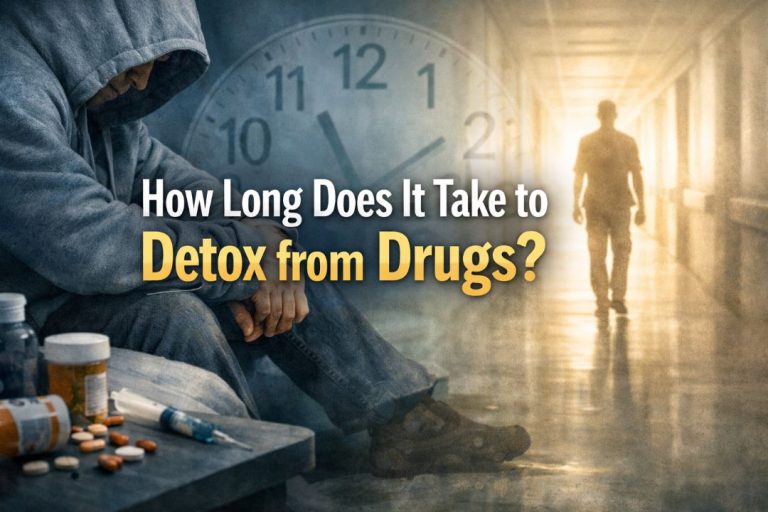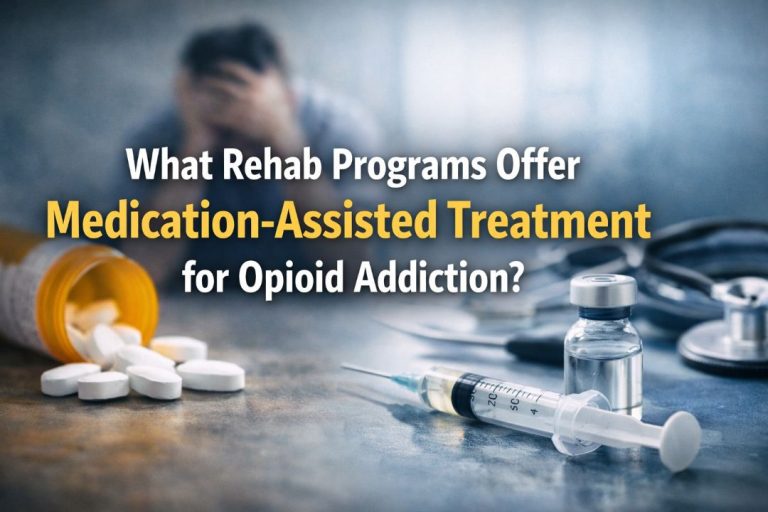If you or someone you love is struggling with addiction, one of the most difficult decisions can be seeking help, especially when your job is on the line. The fear of losing employment often keeps individuals from entering rehab, even when it’s necessary for their health and safety.
But here’s the truth: in Florida—and across the United States—there are legal protections in place to help ensure you can get help without losing your job. This article breaks down your rights, outlines key laws, and enables you to understand what to expect when considering treatment.
Understanding the Fear: Why the Concern is Real
Addiction doesn’t discriminate. It affects people from all walks of life—working professionals, parents, students, and executives. According to the National Survey on Drug Use and Health (NSDUH), about 16.5% of U.S. adults (over 46 million people) met the criteria for a substance use disorder in 20211.
Yet many people suffering don’t seek help, and employment concerns are a significant barrier. A 2022 study from the Substance Abuse and Mental Health Services Administration (SAMHSA) found that nearly half of the people who felt they needed substance use treatment but did not seek it said they feared negative consequences at work.
So let’s get into the facts.
Can You Legally Lose Your Job for Going to Rehab?
Short answer: In most cases, no, you cannot be fired simply for going to rehab.
Several federal laws offer protections to employees who need time off to treat a substance use disorder. In Florida, these protections apply just the same.
The Family and Medical Leave Act (FMLA)
The FMLA allows eligible employees to take up to 12 weeks of unpaid, job-protected leave per year for specific medical conditions, including substance use disorders, if treated by a health care provider.
Who qualifies?
- You must work for a covered employer (most public agencies, and private employers with 50+ employees)
- You must have worked at least 1,250 hours in the past 12 months
- You must have been employed there for at least one year
What it does
- Protects your job while you’re in treatment
- Maintains your group health benefits during leave
What it doesn’t do
- It’s unpaid
- It doesn’t protect you if your addiction leads to policy violations (e.g., being intoxicated on the job)
If you go to rehab voluntarily before your job performance is affected, the FMLA can protect you.
The Americans with Disabilities Act (ADA)
The ADA classifies substance use disorder as a disability when someone is actively in treatment and no longer using illegal drugs.
What it protects
The ADA prevents discrimination based on past or current addiction. It also requires employers to provide “reasonable accommodations” (like time off for treatment)
What it doesn’t protect
The ADA doesn’t protect individuals who are currently using illegal drugs and not in treatment. It also will not apply to those who have poor job performance caused by drug or alcohol use
If you are in recovery or actively seeking treatment, the ADA can shield you from wrongful termination.
Florida-Specific Laws and Workplace Policies
Florida follows federal guidelines but adds another layer with the Florida Drug-Free Workplace Program. Employers who enroll in this program may require drug testing, but they’re also encouraged to refer employees to assistance programs rather than terminate them.
Some Florida employers offer Employee Assistance Programs (EAPs) that provide short-term counseling and referrals for treatment.
Additionally, Florida is an at-will employment state, which means employers can terminate workers for any reason—unless that reason violates federal law (like ADA or FMLA protections).
It is important to note that if you fail a drug test or are caught using substances on the job before seeking help, your protections may be limited.
How to Talk to Your Employer About Going to Rehab
Having the conversation is tough, but there are smart ways to do it.
- Know your rights. Understand if you’re eligible for FMLA or ADA protections before you speak to your employer.
- Go to HR or your direct supervisor. Ask for a private meeting and keep it professional.
- Focus on recovery, not excuses. Emphasize your desire to improve your health and performance.
- Request leave under FMLA, if eligible. You don’t have to disclose the full details—just that you need medical leave.
- Get documentation. Most rehab programs can provide paperwork for FMLA or medical leave.
What Happens After Rehab?
Returning to work after treatment can feel overwhelming, but many employers view this as a sign of strength, not weakness.
Here’s what to expect:
- Job reinstatement (if under FMLA): You are entitled to return to your previous position—or a similar one—after treatment.
- Reintegration support: Some workplaces offer step-down programs or flexible schedules to accommodate post-rehab and aftercare programs.
- Privacy rights: Your medical information and treatment history are confidential under HIPAA. Your employer cannot legally disclose why you were on leave.
In a well-handled scenario, going to rehab can improve your career, your relationships, and your overall stability.
When Termination Can Happen
There are situations where you can lose your job, even if you go to rehab:
- If you violate a zero-tolerance policy (e.g., operating machinery while intoxicated)
- If you enter treatment after performance issues or disciplinary actions have begun
- If your job requires federal clearance and your substance use violates safety or security standards
But even in these cases, legal consultation is wise. Employers must follow due process, and wrongful termination suits are winnable when laws are broken.
What If You’re Supporting a Loved One?
If you’re a spouse, sibling, or parent of someone struggling with addiction, you may also qualify for FMLA leave to help them seek treatment.
You may also want to:
- Encourage them to talk to HR before problems escalate
- Help research treatment options that offer employer coordination
- Advocate for them to document all communications and treatment progress
Final Takeaway: Seeking Help is a Sign of Strength—Not Risk
In Florida and across the U.S., you do not have to choose between your job and your health. Laws like FMLA and the ADA exist specifically to make space for recovery, and many employers are more understanding than you might think, especially when you’re proactive and honest.
The road to recovery isn’t easy, but it’s worth it—and you don’t have to walk away from your career to take the first step.
If you or a loved one requires treatment to overcome addiction, you are not alone. Find compassionate support and treatment at Solutions Healthcare. Reach out to our intake team with questions, to learn about your programs, or to schedule your first appointment.
FAQ: Employment and Rehab in Florida
1. Can my employer require proof that I’m attending rehab during my leave?
Yes, if you’re using FMLA or company medical leave policies, your employer can request certification from a healthcare provider verifying that treatment is necessary. However, they cannot demand details about your diagnosis or treatment specifics. All medical documentation is protected under HIPAA, and only relevant paperwork (such as a treatment verification form) is typically required.
2. What if I don’t qualify for FMLA—do I have any options?
If you’re not eligible for FMLA, you may still have options through your company’s Employee Assistance Program (EAP), short-term disability benefits, or paid time off (PTO). Some employers also offer unpaid personal leave at their discretion. It’s worth speaking with HR confidentially to explore what’s available.
3. Will going to rehab affect future job opportunities or background checks?
Generally, no. Rehab attendance is private medical information and is not disclosed in background checks. However, if your substance use resulted in criminal charges or termination, that history may appear. Still, many employers value transparency and recovery, especially if you’ve completed a treatment program and can demonstrate stability.
4. What happens if I relapse after returning to work?
Relapse is not uncommon in recovery, and it doesn’t automatically mean you’ll lose your job. However, your employer may reassess your role, especially if safety is a concern. Re-entering treatment may again be covered under FMLA or ADA protections, depending on the circumstances. Documenting your actions and maintaining communication with HR can help preserve your employment.
5. Can I use telehealth or outpatient rehab and still work?
Yes. Many Florida rehab programs offer outpatient or intensive outpatient programs (IOPs) that allow you to attend sessions before or after work. Some even provide telehealth options. This flexibility can help you maintain your job while getting the support you need, though it’s crucial to ensure your schedule supports consistent attendance.
- Can my coworkers or supervisor be told why I’m on leave?
No. Your employer is legally prohibited from sharing medical details, including the reason for your leave. They can say you are “on medical leave,” but they cannot disclose that you are in rehab or being treated for addiction without your explicit written consent. Confidentiality is federally protected.
Resources
- U.S. Department of Labor FMLA Overview
- ADA National Network
- Florida Department of Health Substance Use Resources: https://www.floridahealth.gov






















